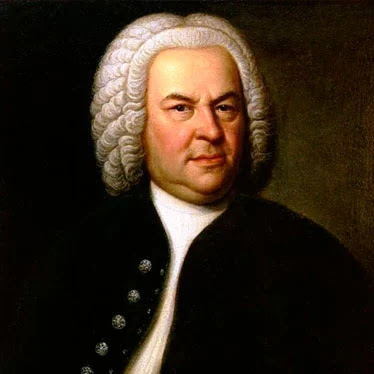Published by Revelle Team on June 10, 2016
Baroque and Bach are two words that are very often linked together. Widely regarded as one of the definitive composers of the Baroque period, Johann Sebastian Bach’s works are still loved today as each new generation discovers his incredible gift.
However, many people are unaware that without some specific enthusiasm and recognition for this master’s classical works, Bach might have been relegated to obscurity. Only having been known as a skilled organist, musical mathematician, and that guy with the perfectly curled, white wig.
Fortunately however, his musical compositions were admired and appreciated by geniuses like of Mozart and Beethoven; and in 1829, nearly 60 years after his death, Felix Mendelssohn, carried Bach’s Passion According to St. Matthew out of oblivion and into the German concert hall for a significant historical event. Although it had been nearly a hundred years after this beautiful masterpiece had been composed, the concert ignited a flame of curiosity and re-evaluation of Bach’s work, resulting in a world-wide acknowledgement of his brilliance and importance to Baroque classical music.
Here are 24 additional facts and trivia about this famous composer:
Johann Sebastian Bach was born March 31, 1685 in Eisenach, Thuringia, Germany.
His father, Johann Ambrosius Bach was a 7th generation musician, and carried on the tradition by teaching him how to play the violin.
Bach lost both his parents when he was 10 years old. While living in Ohrdruf, Germany, his older brother Johann Christoph Bach taught him organ.
In 1700, he was granted a scholarship at St. Michael’s School in Luneburg for his fine voice.
During an inaugural recital on the new organ his talents earned him the job of organist in Arnstadt, in 1703, at New Church, where he provided music for the services at the church, as well as instruction in music to the local children.
Bach moved to Muhlhausen in 1707 to become the organist in the Church of St. Blaise.
Bach married his cousin, Maria Barbara Bach, and they had seven children. His sons Wilhelm Friedemann and Carl Philipp Emanuel became composers and musicians like their father.
Bach’s next position was as court organist in Weimer, in 1708 for Duke Wilhelm Ernst. It was here he composed his very famous Toccata in D Minor.
Bach was given a diamond ring in 1714 from the Crown Prince Fredrick of Sweden who was amazed at his playing.
Having angered Duke Wilhelm for requesting release from his position on short notice and desiring to go work for Prince Leopold of Koethen, Bach was arrested and put in jail for several weeks in 1716.
Upon his release from jail, Bach became the conductor of the court orchestra, in which Prince Leopold played.
In 1719, Bach tried to arrange a meeting with another prolific composer of that era, George Frideric Handel. Despite being only 130 kilometers apart, the two never did meet.
Bach’s wife, Maria, died suddenly in 1720 while he was away with Prince Leopold. She was 35 years old. The fifth and final movement of the Partita in D Minor for solo violin, “Chaconne,” was written to commemorate her.
In 1721, Bach married Anna Magdalena Wülcken. They had thirteen children.
Bach wrote the majority of his instrumental works during the Koethen period.
In 1723, he became the choir leader for two churches in Leipzig, Germany, in addition to teaching music classes and giving private lessons.
Most of Bach’s choral music was composed in Leipzig.
Bach’s deep religious faith could be found even in his secular music. He would put the initials “I.N.J.,” a Latin abbreviation that means, In Nomine Jesu, or “in the name of Jesus,”on his manuscripts.
The Brandenburg Concertos were written in 1721 as a tribute to the Duke of Brandenburg.
The Well-Tempered Clavier was composed as a collection of keyboard pieces to help students learn various keyboard techniques and methods.
Fredrick the Great, King of Prussia inspired Bach’s composition of a set of fugues called Musical Offering in 1740.
The Art of Fugue was begun in 1749 but was not completed.
After struggling with blindness and a failed surgery on his eyesight, Bach suffered a stroke and died in Leipzig, July 28, 1750. He was 65 years old.
His entire career was spent in a contracted area of Germany that is smaller than most of the States in America.
Johann Sebastian Bach is considered the quintessential composer of the Baroque era, and one of the most important figures in classical music in general. His complex musical style was nearly lost in history but gratefully it survives to be studied and enjoyed today. You can learn more about this icon by visiting his dedicated website. In the words of Johannes Brahms (1833-1897), “Study Bach: there you will find everything.”

